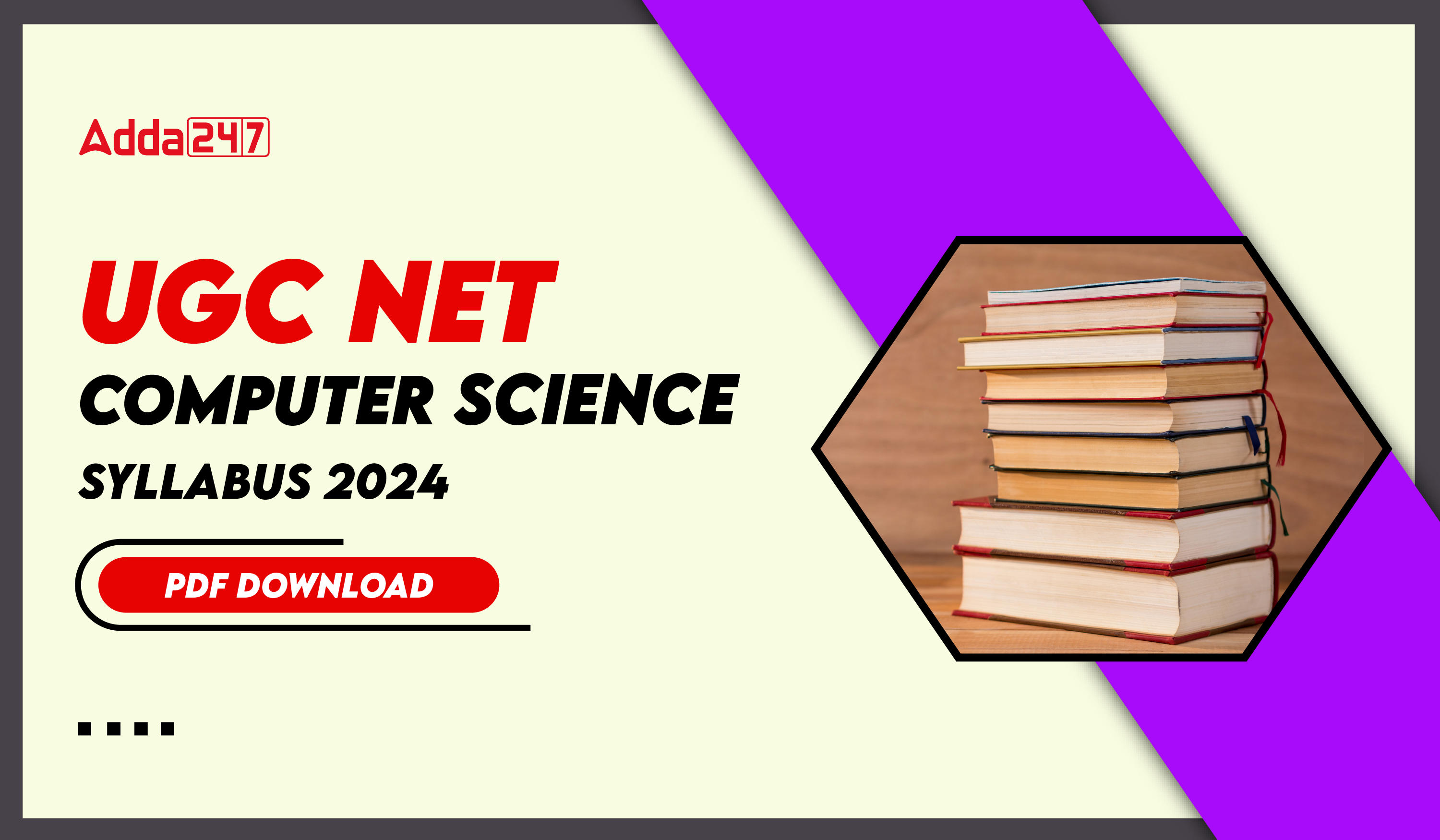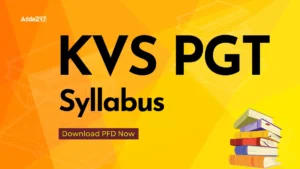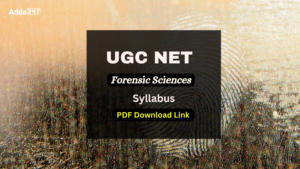Table of Contents
UGC NET Computer Science syllabus has been provided with section-wise syllabus for a candidate who wants to appear for NET Computer Science Exam. Candidates can download the NET Computer Science Syllabus through this article which will help candidates in their exam preparation. Let’s learn here in detail for UGC NET Syllabus with important topic, section to get better result. Here is a broad overview of the NTA NET Computer Science syllabus.
UGC NET Computer Science Syllabus
UGC NET exam pattern will consists 150 question for 300 marks which will be done in 3 hrs. There will be 2 papers with no negative marking. Here lets understand the details of UGC NET Computer Science Exam pattern.
| UGC NET Computer Science Exam Pattern | |
| Type of Questions | Multiple Choice Questions (MCQs) |
| Number of Papers |
|
| Total Marks | Paper 1 – 100, Paper 2- 200 |
| Number of Questions | Paper 1 – 50, Paper 2- 100 i.e. 150 |
| Time Duration | 3 hours |
| Negative Marking | No |
UGC NET Computer Science Marking Scheme
The UGC NET Computer Science exam follows a specific marking scheme. Here are the key points regarding the marking scheme:
- Exam Pattern: The UGC NET Computer Science exam consists of two papers – Paper 1 and Paper 2. Paper 1 is a general paper on Teaching and Research Aptitude, while Paper 2 is subject-specific.
- Total Marks: Each paper carries a maximum of 100 marks. Therefore, the total marks for the UGC NET Computer Science exam are 200.
- Question Types: Both Paper 1 and Paper 2 contain objective-type multiple-choice questions (MCQs).
- Marking Scheme: The UGC NET Computer Science exam follows a positive marking scheme. Each correct answer carries 2 marks. There is no negative marking for incorrect answers or unanswered questions.
- Paper 1 Distribution: Paper 1 consists of 50 questions, each carrying 2 marks. The syllabus for Paper 1 includes topics such as teaching aptitude, research aptitude, reasoning ability, comprehension, divergent thinking, and general awareness.
- Paper 2 Distribution: Paper 2 focuses on the subject-specific syllabus, which in this case is Computer Science. It contains 100 questions, each carrying 2 marks.
- Qualifying Criteria: To qualify for the UGC NET exam, candidates need to secure the minimum 40% aggregate marks in both Paper 1 and Paper 2 to qualify for the eligibility of Assistant Professorship.
UGC NET Computer Science Syllabus Section Wise
The UGC NET Syllabus for Computer Science Subject covers a wide range of topics related to computer science and its applications. It includes areas such as mathematical logic, computer architecture and organization, programming in C and C++, data structures and algorithms, theory of computation, compiler design, operating systems, databases and SQL, computer networks, and software engineering.
As Paper 2 comprises 100 questions and each question is carry 2 marks, the total marks allotted for the exam is 200. Review the latest UGC NET Syllabus for Computer Science highlighted in the following section.
Unit 1: Discrete Structures and Optimization
- Mathematical Logic
- Sets and Relations
- Graph Theory
- Optimization
- Counting, Mathematical Induction, and Discrete Probability
Unit 2: Computer System Architecture
- Digital Logic Circuits and Components
- Data Representation
- Basic Computer Organization and Design
- Register Transfer and Micro operations
- Microprogrammed Control
Unit 3: Programming Languages and Computer Graphics
- Language Design and Translation Issues
- Elementary Data Types
- Object-Oriented Programming
- 2-D Geometrical Transforms and Viewing
- 3-D Object Representation, Geometric Transformations, and Viewing
Unit 4: Database Management Systems
- Database System Concepts and Architecture
- SQL
- Data Warehousing and Data Mining
- Normalization for Relational Databases
- NoSQL
Unit 5: System Software and Operating System
- System Software
- Basics of Operating Systems
- Threads, CPU Scheduling
- Process Management
- Storage Management
Unit 6: Software Engineering
- Software Process Models
- Software Design
- Estimation and Scheduling of Software Projects
- Software Configuration Management
- Software Quality
Unit 7: Data Structures and Algorithms
- Performance Analysis of Algorithms and Recurrences
- Data Structures
- Graph Algorithms
- Complexity Theory
- Advanced Algorithms
Unit 8: Theory of Computation and Compilers
- Theory of Computation
- Context-Free Language
- Unsolvable Problems and Computational Complexity
- Regular Language Models
- Code Generation and Code Optimization
Unit 9: Data Communication and Computer Networks
- Data Communication
- World Wide Web (WWW)
- Functions of OSI and TCP/IP Layers
- Mobile Technology
- Network Security
Unit 10: Artificial Intelligence (AI)
- Artificial Neural Networks (ANN)
- Genetic Algorithms (GA)
- Natural Language Processing
- Knowledge Representation
- Multi-Agent Systems
Direct Link to Download UGC NET Computer Science Syllabus PDF
The direct link to download UGC NET Computer Science Syllabus PDF has been given below. Candidate can download NET Computer Science Syllabus through below links. All the candidate can prepare with important topics wise, unit wise detailed NTA NET Computer Science syllabus in below PDFs. The link to download UGC National Eligibility Test Computer Science Syllabus PDF has been given below.
Download UGC NET Computer Science Syllabus PDF
How to Score More in UGC NET Computer Science?
Scoring more in the UGC NET Computer Science exam requires a focused and strategic approach. Here are some tips to help you maximize your score:
- Understand the Exam Pattern and Syllabus: Familiarize yourself with the UGC NET Computer Science exam pattern and syllabus. Understand the weightage given to different topics and allocate your study time accordingly. Ensure thorough coverage of all the important subjects.
- Plan a Study Schedule: Create a study schedule that is realistic and suits your learning style. Allocate dedicated time slots for each topic and stick to the schedule. Consistency in studying and regular practice is key to scoring well.
- Focus on Core Concepts: Pay attention to fundamental concepts and theories in computer science. Build a strong foundation in areas such as data structures, algorithms, programming languages, computer networks, database management systems, and software engineering. Understanding the core concepts will help you solve complex problems effectively.
- Solve Previous Year Question Papers: Practice solving previous year question papers to understand the exam pattern, question types, and difficulty level. This will give you an idea of the important topics and help you manage your time during the actual exam.
- Take Mock Tests: Mock tests simulate the actual exam environment and help you evaluate your preparation level. Take online or offline mock tests to assess your performance and identify areas that require improvement. Analyze your mistakes and work on strengthening your weak areas.
- Revise Regularly: Set aside dedicated time for revision. Review important concepts, formulas, definitions, and programming languages. Make concise notes and flashcards to aid in quick revision.
- Practice Time Management: Develop effective time management skills to ensure that you can complete the exam within the given time frame. Solve practice papers and mock tests under timed conditions to improve your speed and accuracy.
- Stay Updated with Current Affairs: Stay updated with the latest advancements and trends in computer science. Read technology-related news, research papers, and industry publications. This will help you answer questions related to current developments in the field.
- Stay Calm and Confident: Maintain a positive mindset during the exam. Read the questions carefully, manage your time wisely, and answer to the point. Avoid unnecessary elaboration and focus on providing accurate and concise answers.
- Seek Guidance and Clarify Doubts: If you come across any challenging topics or concepts, seek guidance from experienced mentors, professors, or join online communities and discussion forums to clarify your doubts. Utilize available resources to strengthen your understanding.




 KVS PGT Syllabus 2025, Download PGT Syll...
KVS PGT Syllabus 2025, Download PGT Syll...
 UGC NET Forensic Science Syllabus 2025 a...
UGC NET Forensic Science Syllabus 2025 a...
 UGC NET Visual Arts Syllabus 2025 PDF Do...
UGC NET Visual Arts Syllabus 2025 PDF Do...














